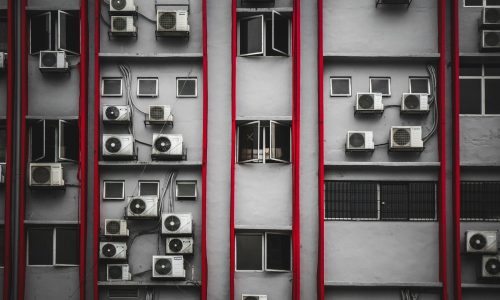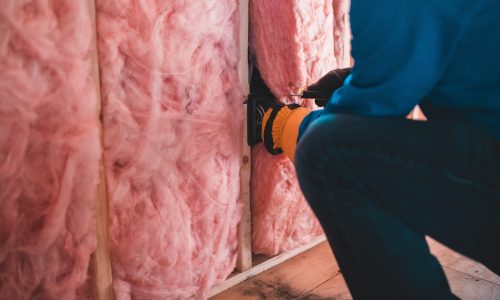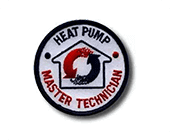Heat pumps are among the most widely used and energy-effective methods of heating and cooling that are easily available. They draw heat from the surrounding air or ground and circulate it into the space in which they are installed.
This article will discuss the issue of “At What Temperature Do Heat Pumps Stop Working?” by going over the elements that influence the operation of heat pumps and providing an answer to the aforementioned topic.
How do heat pumps work?

Let’s have a basic understanding of how heat pumps function before we get into the matter itself. Heat pumps are classified into two types: air-source and ground-source. To provide heating or cooling, air-source heat pumps remove heat from the outside air, while ground-source heat pumps pull heat from the earth itself. These elegant machines are exceptionally energy-efficient and work well to heat and cool residential and commercial buildings.
An exterior unit and an inside unit are the two components that make up a heat pump system. A compressor, heat exchanger, and fan are all components that may be found in the outside unit. Both a blower and an evaporator coil may be found within the interior unit. During the time of year when your house needs heating, the heat pump will pull heat from the surrounding air or earth and then move it into your residence using a refrigerant.
The refrigerant evaporates into a gas when it is exposed to heat from the air or ground outside. After that, the gas is squeezed more tightly within the compressor, which causes its temperature to rise. The heated gas is then circulated through the evaporator coil of the interior unit, where it transfers its heat into the surrounding air.
After that, the blower will move the warm air throughout your house. During the cooling season, the heat pump will work in reverse, drawing heat from the air within your home and releasing it outside. This will bring the temperature down.
What affects the performance of a heat pump?
Your heat pump’s efficiency may be impacted by a number of different things. Let’s take each of them in turn and talk about them.
Temperature
To answer what temp do heat pumps stop working, it is essential to understand how crucial temperature setting is for the functioning of heat pumps. The temperature is the single most important variable that has an effect on the efficiency of a heat pump. When temperatures are milder, heat pumps operate at their maximum efficiency.
The heat pump will generally become less effective as the temperature outside drops. When the temperature outside is really low, the heat pump in your home may not be able to produce enough heat to keep your house warm. This occurs when the temperature of the refrigerant falls below the threshold at which it can efficiently absorb heat from the ground or air outside the building.
Size
The capacity of your heat pump is another important factor in determining its overall effectiveness. Your house will not get sufficient heating or cooling from a heat pump if it is undersized for the space it occupies.
A heat pump that is too big for your house may cycle on and off often, leading to greater wear and tear on the system and decreased efficiency. On the other hand, a heat pump that is the appropriate size for your home will keep your home comfortable throughout the year.
Insulation

The effectiveness of your heat pump is also impacted by the insulation that is present in your house. A house with enough insulation will have lower heating and cooling needs, which means that the heat pump in the home will not have to work as hard to maintain the desired temperature.
Conversely, a house with inadequate insulation will demand more heating and cooling, which means that your heat pump will have to work harder and be less effective.
Airflow
The effectiveness of your heat pump is impacted by the airflow that occurs inside your house. When you have enough circulation in your house, the air that has been heated or cooled will be spread uniformly throughout the space. Inadequate airflow may result in hot or cold areas and a reduction in efficiency.
At what temperature do heat pumps become ineffective?
Now that we’ve gotten that out of the way, let’s address the most important topic: at what temperature do heat pumps stop working? Heat pumps are only able to function effectively at temperatures that are consistently higher than freezing. However, the precise temperature at which a heat pump ceases working depends on several variables.
These considerations include the size of the unit, the insulation of your house, as well as the age and condition of the heat pump. At temperatures below 40°F (4.4°C), heat pumps often become less efficient. It’s possible that heat pumps won’t be able to pull enough heat from the ground or air outside your house when the temperature drops below 25 degrees Fahrenheit (-3.9 degrees Celsius).
If you reside in an area that experiences very low temperatures, it is possible that you may want an additional source of warmth in addition to your heat pump. Some examples of secondary heating sources are electric resistance heating and furnaces. This is because the heat pump will not be able to keep up with the level of warmth required in your house when the temperature drops to extremely low levels.
It is essential to be aware that more recent types of heat pumps are intended to function at temperatures that are lower than those of earlier versions. Some models may function normally at temperatures as low as -15 degrees Fahrenheit (-26 degrees Celsius). However, the price of these models could be higher than the price of the usual versions.
How to improve the performance of a heat pump in colder temperatures?
The following are some suggestions that might help you get the most out of your heat pump even when the temperature is low:
Make sure that your heat pump receives regular maintenance
Your heat pump will be working at its full potential if you do regular maintenance. This entails doing maintenance tasks like cleaning the outside unit, monitoring the amount of refrigerant, and replacing the air filter on a regular basis.
Utilize a programmable thermostat
The use of a thermostat that can be programmed will enable you to establish various temperatures for different times of the day. By doing this, you can reduce the energy you use and the wear and strain on your heat pump.
Use an additional source of heating
If you live in a region where the temperatures drop to extremely low levels, you should think about utilizing an additional source of heating, such as electric resistance heating or a furnace. This will guarantee that your house maintains its warmth, even if your heat pump cannot keep up with the demands placed on it to provide warmth.
Insulate your house
If you properly insulate your home, you may help minimize the heat required to keep your home at a comfortable temperature, which means that your heat pump won’t have to work as hard.
Conclusion
Heat pumps are a great alternative for heating and cooling your home when the temperature is on the mild side. However, if the temperature outside is really cold, they may not be able to keep up with the heating needs of your house. At what temp do heat pumps stop working depends on a number of variables, including the size of the unit, the level of insulation in your house, as well as the age and condition of the heat pump.
If you live in a location where the temperatures are really low, you may want to think about utilizing a backup heating source or making an investment in a more recent type of heat pump that is intended to work in lower temperatures. Maintaining your heat pump on a regular basis and ensuring that it has enough insulation are two more things that may enhance its efficiency when temperatures are low.
If you are looking to service your HVAC system, you may want to consider Autumn Air. You may call us at (602) 266-5247 or schedule our service here.













